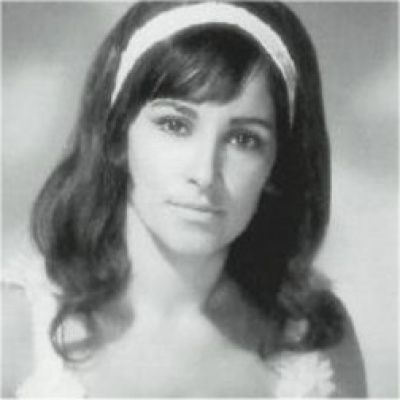
Rosie & the Originals
by Richie Unterberger Rosie & the Originals are one of the best-remembered one-shot artists of the early rock era, getting to number five with their 1960 single Angel Baby. A slow, simple, and primitively recorded and executed doo wop-shaded ballad, it was distinguished from countless other records of the sort by 15-year-old Rosie Hamlins unnaturally high, thin voice, which got higher-than-high on the periodic wordless ooh, ooh-oohs that served as the records primary hooks. The singles gotten more notoriety than might be expected considering that the group never had another Top 40 hit. John Lennon cited Rosie as one of his favorite singers in a 1969 interview in Life magazine, and recorded the song in the mid-70s for his Rock n Roll oldies collection, although that track wasnt issued until the mid-80s. In an essay in Rock Almanac, Mark Sten even described the song as generating a robot mantra devoid of embellishment or variation, the perfect underpinning for Rosies piercing, disembodied-siren vocal. With Angel Baby, rock had regressed as far as it could, some nameless dread loosed within the collective Top 40 mind had run its course and spent itself in a lost mournful wail. Angel Baby was the final moonlit flowering of rocks medieval phase, paean to a purity and innocence on longer possible in the real world. The band certainly had no thoughts of inviting such intellectual commentary when they formed in San Diego in 1960. Unable to find a recording studio in San Diego, they cut Angel Baby in a barn-like building in the farming town of San Marcos, with a radically different B-side, Give Me Love, with a vocal by Bluford D. Wade. The group had trouble interesting Los Angeles labels in the song (a Hamlin original) until they convinced a department store manager in San Diego to play it. This attracted attention from kids in the store and a record distributor that happened to be there at the time. Through him they got the single Angel Baby released on Highland, and at the end of 1960 it shot up the national charts. Although Rosie & the Originals recorded a few more tracks, they broke up almost immediately after Angel Baby made the charts, in a dispute over the terms of a recording contract they were considering signing. In 1961, Jackie Wilsons manager, Nat Tarnopol, got Rosie a contract with Wilsons label, Brunswick. Brunswick did put out a follow-up single, Lonely Blue Nights, which made number 66, as well as an album and another single, billing the artist solely as Rosie for all the releases. In the meantime Highland put out a couple of Rosie & the Originals 45s with tracks to which they had the rights. Angel Baby, however, was one of those accidents of timing and unique material that couldnt be repeated, and none of Rosies subsequent recordings — which, like Angel Baby, were usually simple pop/rock ballads with a doo wop feel — could recapture the magic. Hamlin did make another single for the Globe label before leaving the music business to raise a family with her husband, Noah Tafolla, who had been leader and lead guitarist of the Originals. She did some tracks with producer Doug Salma in 1969 in a more updated doo wop/girl-group style that remained unreleased until 1999, when the Ace compilation The Best of Rosie & the Originals was issued.
